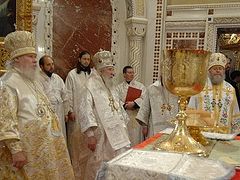I was in a small shop yesterday in a coastal town. Among its many knick-knacks were a large variety of compasses. We have become a compass-driven culture today, after a lull in which they were largely passé. Of course, the compass is now a very passive thing, hidden within the workings of the resident GPS system in our phones. There has long been a debate about the presence of an “inner compass” in the human brain. Some people seem to have a strong sense of direction, while others do not. Many animals clearly have a means of finding their way about, so that it would come as no surprise if some humans were similarly equipped. But to be equipped and to be aware of it, much less, able to use it, are very different things.
God seems to me to be a compass-related question. The traditional compass points towards the magnetic North because the needle is magnetized and allowed to float freely. It is drawn to the right position by the magnetic field of the earth. A Christian must say that there is a natural spiritual compass within every human being, inasmuch as we are created in the image of God. Some would say that the spiritual compass is distorted by the world and its many noises. I think this is mistaken. What is missing in any human life is not the compass itself, but the willingness of drawing near to read it.
Do we actually want to know God? And what does it mean when we ask that question?
The “God question” is often so encrusted that it is hard to actually engage it. This “encrustation” occurs in a number of forms. First, there is no way to strip the reality of God from particularities. There is no “generalized” God. If there is a God, then He is not only particular, He is transcendently particular. He is not one out of a set of multiples, nor is there even a set. He is without category.
Second, we can never ourselves be without particularities. We are not generalized beings: we are always somewhere, somehow, somewhat. We have a history and are positioned in place and time. Every thought we have is couched in a language and must be experienced just so. There are, however, some practices that make the compass more available to us (or ourselves more available to the compass).
Many, if not most, of the particularities of our lives are deeply enmeshed in matters of identity. We do not necessarily think of them in such a way, but everything that we care most deeply about (and how we care about it) carries with it some piece of our identity, something that forms and shapes who we think ourselves to be. I think it is safe to say that those things about which we are truly indifferent are simply those things in which we have no stake. If they did not exist, we would feel no loss. They are not me.
Strangely, the question of knowing God is perhaps the greatest question of identity. To know God is also to know my self. All things take on their proper meaning in their proper light in the presence of the knowledge of God. If the knowledge of God does not have this effect, then it surely is knowledge of something else. For in the presence of God, everything else must become relative, and relative only to Him. Everything takes its true form and shape in the light of the Light.
And this most especially concerns ourselves. It was what makes the knowledge of God and finding God so terribly problematic.
Every identity that is mine, every detail that forms and shapes the “me” that I value, is inevitably judged when brought into the Light. And this inevitably means that, like Adam and Eve in the Garden, we encounter shame when we find God.*
When we approach God, the true and living God, all of the identities that wrap our inmost self, begin to crumble and disappear. People frequently “have a relationship” with “God,” in which their identities are up-front and foremost, but this is far short and possibly unrelated to true knowledge of God. Such “relationships” differ very little from the relationships through the ages with gods of many names. It is an approach to a powerful helper but not an approach to communion with the very Ground of all being.
That event of communion is the end (and beginning) of a journey. It is not insignificant that in Scripture, such an encounter with God results in the change of a name. Abram become Abraham; Jacob becomes Israel; Simon bar Jonah becomes Peter. As the disciples said to Christ, “Lo, we have left everything!” The imagery in St. John’s Revelation suggests that we will all receive a “new name” in the Kingdom. That fact is reflected in the naming of a child on the eighth day in preparation for their Baptism, and that it is traditionally the name of a saint. We are not known by our own name, but by a name that has been fulfilled in heaven itself, our own final name waiting to be revealed.
St. John says this:
Beloved, now we are children of God; and it has not yet been revealed what we shall be, but we know that when He is revealed, we shall be like Him, for we shall see Him as He is. (1Jo 3:2)
When God spoke to Moses from the burning bush, Moses asked for His name. God answered: “I am who I am.” It is also interesting that the encounter produced another question from Moses: “Who am I that I should go to Pharaoh, and that I should bring the children of Israel out of Egypt?” (Exo 3:11) Moses understands and knows himself in a new way, even as he is initiated into the knowledge of God. These are not separate events: they belong together. The revelation of God is also the revelation of Moses.
The truth of our own existence is like the truth of Moses. Who-I-am has its meaning as it is related to God. God alone is the truly existing one and the only ground of true existence. Who-I-am only has true existence if and as it is grounded and related to the truly existing God. There is nothing that exists apart from God. As a side note, there is and can be no such thing as a “secular” existence. “In Him, we live and move and have our being.” (Acts 17:28)
In the classical teaching of the Christian faith, Christ is unfailingly identified with the One who says, “I Am that I Am.” The icons of Christ are always inscribed with ὁ ὤν (“He who is”), the phrasing from Exodus 3 in the Greek text.
I noted at the beginning of the article the problem with generalities. God does not exist ingeneral but is transcendently particular. This is made abundantly clear in the Incarnation. The fathers, for example, wrote that Christ may be depicted in an icon, not because He became man, but because He became “a” man. It is in His particularity, manifest as the person of Jesus Christ, that He is made known. It is in our response to God, as Particular, that we, at last, can come to know our true selves.
Many people say they believe in God, and may even be able to describe some of the things they attribute to Him. But so long as the belief rests in generalized terms, there is no true knowledge, only the projection of our wishes, desires, even delusions (no matter how good or noble). The journey towards knowing God requires unknowing what we think to be ourselves that we might see Him for who He is. Our own name and true existence is then revealed only by Him and in Him. And this is eternal life. (John 17:3).
+++
* The experience of shame, according to psychologists, is bound up with the question of “who I am.” It is about identity. Anytime we experience a wound, an embarrassment, or even too great a sense of vulnerability, there is a natural experience of shame. This is, in its most common form, quite harmless, producing little more than a flush to the cheeks and averting of our eyes. There, are, of course, much more serious forms of toxic shame, genuine attacks on the very core of our identity that can leave crippling wounds that last for years. But all forms of shame are things that people avoid. According to psychologists, it is our most painful emotion.
God Himself is not the source of our shame. He does not seek to bring us into shame, indeed, Christ “bears our shame.” However, it is the nature of the Light that it reveals things to be what they truly are. If the identities we wear are made of the flimsy stuff of delusion and imagination, then the presence of God will show them for that very unreality. It leaves us feeling stripped bare. “I heard Your voice in the garden, and I was afraid because I was naked; and I hid myself.” (Gen 3:10) There was no sin in Adam’s nakedness, nor was there any judgment from God regarding it. Indeed God gave coverings for Adam and Eve. But Adam experienced his nakedness as fear/shame.




